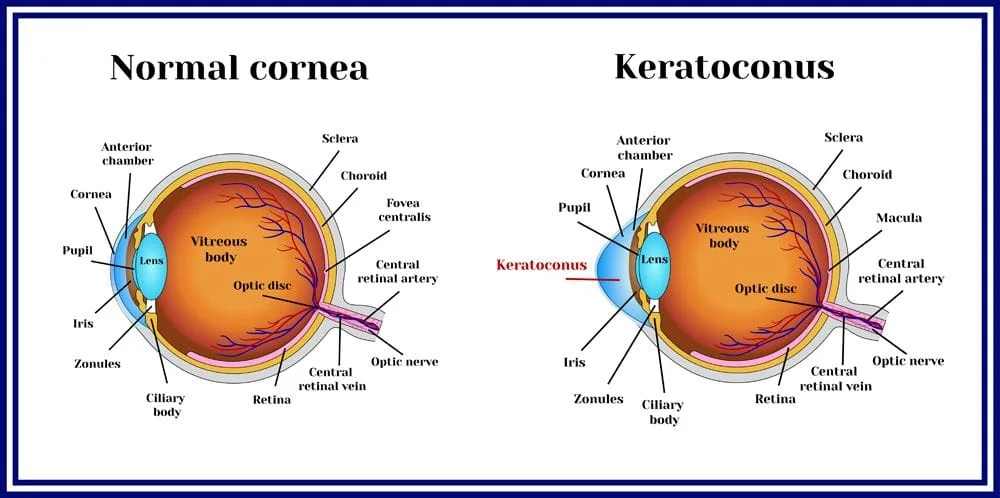Did you know that the shape of your cornea can affect your vision? Having a cone-shaped cornea, known as keratoconus, can cause blurry vision and difficulty seeing at night. At Family EyeCare at Westchase in Tampa, FL, we provide comprehensive eye exams to learn more about your condition and treatment to help you see clearly. Before scheduling your appointment, learn about some causes and symptoms of keratoconus below:
Symptoms of Keratoconus
Keratoconus develops over a long period of time. In the early stages, you might have mildly blurry vision. As this condition gets worse, your vision might become more distorted. You might also have other symptoms, such as sudden cloudy vision and an increased sensitivity to light. In addition, you may need updated eyeglass or contact lens prescriptions more often.
Causes of Keratoconus
This condition develops as your cornea becomes more elongated or cone-shaped. While the cause of keratoconus is known, there are some risk factors that increase its chances. For example, having a family history of the condition is among these risk factors. Not only that, but rubbing your eyes frequently, age, and Ehlers-Danlos syndrome can also contribute to keratoconus.
Diagnosing Keratoconus
An eye exam can help determine if you have keratoconus. Tests that are often done as part of the diagnostic process might include a slit-lamp exam and keratometry, which examine your cornea and check your vision. You might also have computerized corneal mapping done to check the thickness of your cornea. If you are diagnosed with this condition, our eye doctors will speak with you about the available treatments.
Treatment for Keratoconus
If you have mild keratoconus, we may recommend eyeglasses or contact lenses to help you see more clearly. This might be the only treatment you need unless the condition gets worse. If you have moderate keratoconus, our eye doctors might suggest specialized contact lenses, such as scleral lenses, to improve your vision or undergoing a procedure. Corneal cross-linking is a procedure that is performed to slow the progression of keratoconus. In addition, severe cases of keratoconus might require surgery due to scarring on your cornea. Once we learn more about your condition, we can suggest the necessary treatment for your specific needs.
Contact us for an Appointment Today
If you’re experiencing any symptoms of keratoconus, our team at Family EyeCare at Westchase in Tampa, FL, is happy to help. To learn more about the treatments we offer or to schedule your eye exam call us at (813) 814-2020 today. When you’re seeking an optometrist near me, we are ready to assist!

